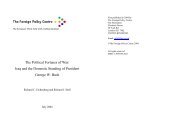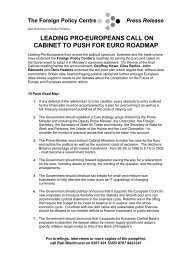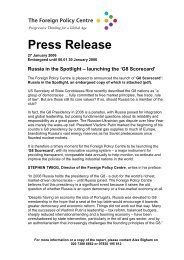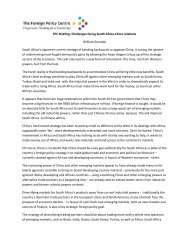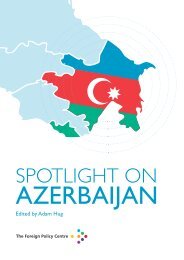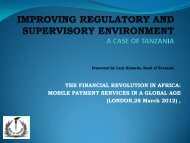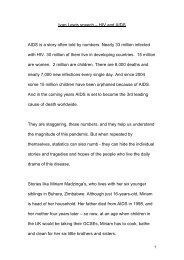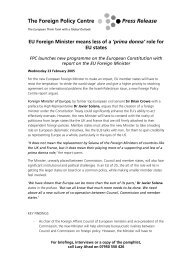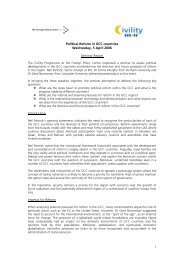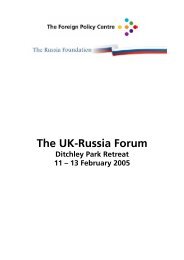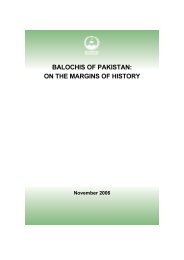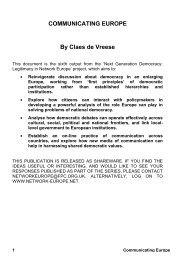'Five Years of President Putin: An Assessment' - Foreign Policy Centre
'Five Years of President Putin: An Assessment' - Foreign Policy Centre
'Five Years of President Putin: An Assessment' - Foreign Policy Centre
Create successful ePaper yourself
Turn your PDF publications into a flip-book with our unique Google optimized e-Paper software.
<strong>Putin</strong>’s <strong>Foreign</strong> <strong>Policy</strong> Goals and Relations with Europe Top<br />
Dr. Thomas Gomart<br />
Last year can be seen as a turning point for Russian foreign policy. With EU enlargement and<br />
the Orange Revolution in the Ukraine, the relationship between Russia and Europe has<br />
changed. Crisis and misunderstanding has put <strong>Putin</strong> on the defensive. The results <strong>of</strong> Beslan,<br />
the Ukraine, Moldova and Chechnya have created a negative image abroad.<br />
<strong>Putin</strong> therefore wants to correct this perception while limiting changes. He knows that Europe<br />
is the future, yet appears ambivalent to Brussels. True to Russian tradition, they will continue<br />
to build diplomatic relations on a bilateral basis. It remains more comfortable for Russian<br />
diplomats to avoid Brussels and the new member states. In this way it can create a balance <strong>of</strong><br />
power where Russia can speak as an equal, but an equal <strong>of</strong> one country to twenty-five.<br />
Dr. Gabor Beszterczey<br />
Russia’s foreign policy can be considered as its weakest link. With Russia’s concentration <strong>of</strong><br />
power has come increased isolationism. Yet Russia still has a dialogue with its counterparts in<br />
Europe. Some in the Kremlin see an EU ‘encirclement’, which could explain why EU-Russia<br />
relations do not exist: diplomatic exchanges are always done on bi- or tri-lateral bases.<br />
When it comes to relations with Russia, influence on a state level is inefficient. With relations<br />
with Europe at a low ebb, the EU should work with the US. However, those on the continent<br />
are working on their own means to avoid Russian isolation. Chirac’s conception <strong>of</strong> a multipolar<br />
world has facilitated relationships between Paris and Moscow; Moscow and Paris already<br />
have agreements on security, involving strategy, defence and nuclear policies. A commercial<br />
relationship has also been fostered. Berlin and Madrid are following suit, but disagreements<br />
have arisen on how best to avoid isolationism.<br />
Both sides must make efforts to clarify their positions, but it must be recognised that Eastern<br />
Europe cannot form a bridge. Europe is rather intrusive compared to the US and EU<br />
enlargement is seen by some as a threat. Yet Russia still suffers from an ideological hangover<br />
from the Soviet era. <strong>Putin</strong> still plays by the old rules but is favourable compared to Yeltsin’s<br />
dual nature foreign policy. <strong>Putin</strong> has a problem with the West, so in the end relations with<br />
Europe will probably deteriorate.<br />
Top<br />
Top<br />
7



